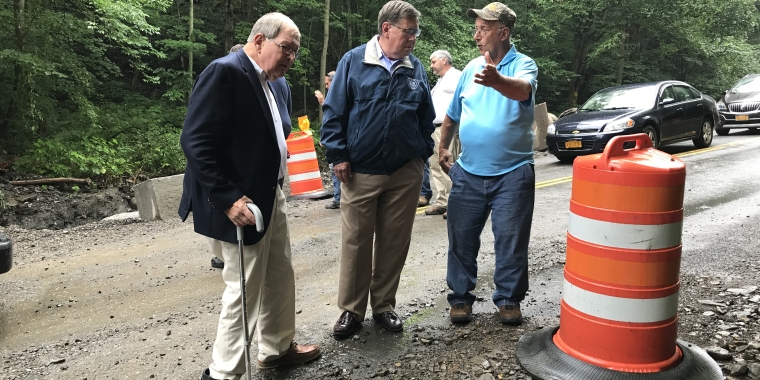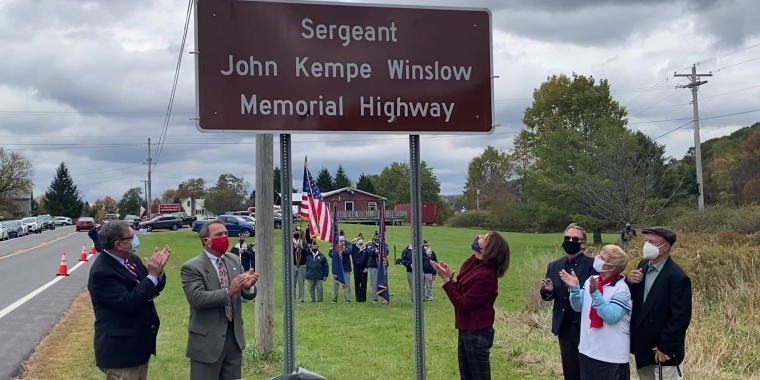
Seward Tours Flood Damage in Cayuga County, Calls for Improved Disaster Response
Jeff Bishop, Communications Director
July 27, 2017
-
ISSUE:
- Flood
- Storms
- Local Government

MORAVIA, 07/27/17 -- State Senator James L. Seward (R/C/I – Oneonta) today toured flood-stricken locations in Cayuga County with local elected officials and called on the governor to provide state assistance to local governments and private property owners who suffered significant property damage.
“Public and private property in southeastern Cayuga County has suffered severe damage due to recent storms and associated flooding,” said Senator Seward. “While the overall damage may not rise to the threshold necessary for a federal disaster declaration, individual homeowners are facing severe hardships and municipal budgets are taking a major hit. State assistance is needed.”
Along with calling on Governor Cuomo to provide immediate emergency relief, Senator Seward also says New York State must enact legislation to better prepare and respond to frequent natural disasters.
“In recent years, we have witnessed a sharp rise in flooding events that have resulted in physical and financial damage. I have co-sponsored legislation that would rewrite New York State’s disaster response playbook to provide short-term assistance for home and business owners as well as local governments, while also better preparing for future storms through long-term recovery and mitigation efforts,” Seward added.
Among the bills that have passed the senate previously:
- Legislation to create a supplemental fund to provide individual assistance, public assistance and hazard mitigation after a natural or man-made disaster. Aid would be available for a variety of disaster-related expenses, including home repairs and medical expenses for individuals. Municipalities would be eligible to receive funds for such items as public services expenses and debris removal. Infrastructure grants would be available to public schools.
- Legislation establishing the Upstate Flood Mitigation Task Force, a nine-member body comprised of experts in hydrology, civil engineering, climatology, emergency management and soil and water conservation. The group would conduct an in-depth examination of environments and economies that could be negatively impacted by flooding, the cost impact of flooding over the last five years and any procedures in place for flood response.
“When disasters are isolated to only a few locations government attention can be lacking. We need to improve our response, no matter the magnitude of the disaster, and ensure that every victim receives appropriate government support,” Seward concluded.
-30-
Share this Article or Press Release
Newsroom
Go to NewsroomMichael L. Mayne
November 11, 2020

Statement on Remington Arms
October 26, 2020

State Highway Dedicated in Honor of Fallen Otsego County Marine
October 6, 2020

Statement on Remington Arms
October 1, 2020
